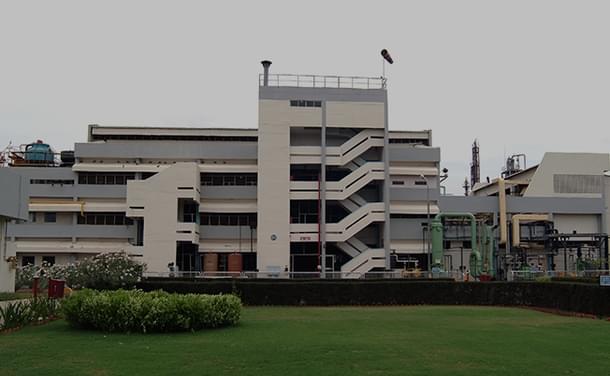Analysis
Glenmark Life Sciences IPO: Should You Subscribe? Strong Player In APIs With Focus On Contract Development and Manufacturing
Sourav Datta
Jul 29, 2021, 11:13 AM | Updated 11:13 AM IST
Save & read from anywhere!
Bookmark stories for easy access on any device or the Swarajya app.


Since the time the pandemic began, pharmaceutical stocks have created a lot of value for stock investors. There couldn’t have been a better time for a pharmaceutical company to file for an IPO.
The Glenmark Life Sciences initial public offering (IPO) has generated strong investor interest over the past two days, with the issue being oversubscribed by 5 times.
While Glenmark Life Sciences issues fresh equity and raises money, Glenmark Pharma, the listed promoter of Glenmark Life Sciences, will also be selling a part of its stake through the IPO.
The money from the fresh issue would be used to pay the promoter for spinning off the API business to GLS. After the payment Glenmark Pharma will continue holding the stake in the company – an uncommon arrangement.
Glenmark Life Sciences is in the business of manufacturing Active Pharmaceutical Ingredients (APIs). APIs are the raw material used in drug production.
Formulations manufacturers process these APIs to produce the tablets or the syrups the end-consumer uses. GLS was originally a part of the promoter’s manufacturing operations. However, it was spun off separately as a independent API manufacturer.
The API business is quite competitive and commoditized. With the commodity nature of the business, companies must focus on having a lower cost structure.
China, which has many low cost API manufacturers, is a threat for many Indian API manufacturers. However, GLS has focused on smaller volume, non-commoditized API which has helped it create a niche for itself.
China has been cracking down on manufacturers who pollute the environment, which has helped to limit the Chinese supply of APIs.
The company’s major products include Telmisartan (anti-hypertensive), Atovaquone (anti-parasitic), Perindopril (anti-hypertensive), Teneligliptin (diabetes), Zonisamide (CNS) and Adapalene (dermatology).
It has developed a strong market share in several APIs which ensures that it has economies of scale and can further lower its costs.
Over the last two years, the company has grown its revenues at a compounded annual growth rate of 46 per cent while having stable EBIDTA margins of around 30 per cent.
The high quality product has also helped it differentiate itself from other competitors. Regulatory bodies all over the world have focused on high quality medicines.
In the past six years, GLS has not received a single warning or import alerts during inspections by regulators and customers.
People who follow the space would remember that from 2017 to 2019, multiple listed API manufacturers had received import alert letters and warnings from regulatory bodies.
The warnings were issued because of quality issues with the products. GLS’ focus on quality ensured that it wasn’t penalised.
GLS is also focusing on developing its Contract Development and Manufacturing Organization (CDMO) business. Large pharmaceutical firms have begun to outsource research, drug development and manufacturing CDMOs.
CDMOs are usually located in China and India because of their low labour cost and availability of educated white-collar workers. These countries also possess the technical knowledge and tools to carry out these activities.
CDMO is a sticky business where changing the outsourcing company is a tedious process. With the Chinese crackdown on environmentally lax manufacturers, Indian CDMOs have a great opportunity to prove themselves.
Despite these advantages the business also faces some risks:
Regulatory Risks:
In recent years, several pharmaceutical manufacturers have received warning s from USFDA and other regulators regarding quality standards.
If rules become more stringent or adverse regulations are initiated, it is likely that the company might be affected.
Customer Concentration
The company’s five largest customers accounted for more than 50% of FY21 revenues with the Promoter the largest customer. The dependence on a select group of customers may also constrain the company’s ability to negotiate arrangements.
Some of its competitors might plan to start their in-house API manufacturing operations to reduce costs, which will impact Glenmark negatively.
Product Concentration
The company’s top 10 products accounted for 66.36% of FY21 revenue. If market growth in key products declines, or if profit margins on products sold in key products decline, results of operations could be adversely affected.
Supplier Concentration:
For FY21, three largest suppliers accounted for 40.26% of total purchases of key starting materials. Any disruption in the supply chain from its key suppliers can result in a pause on manufacturing
Pricing Pressure:
Since the business has low barriers to entry, and the company is dependent on a five customers for 50 per cent of it revenues, the company might witness pressure on pricing. The only way to remain competitive is lower cut. Pursuing cost-cutting measures, while maintaining rigorous quality standards, may lead to an erosion of margins.
GLS offers investors a chance to invest in the Indian CDMO and API business. However, investors should only invest after their own due diligence.





